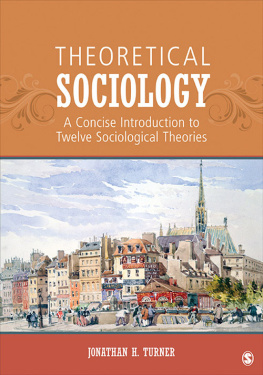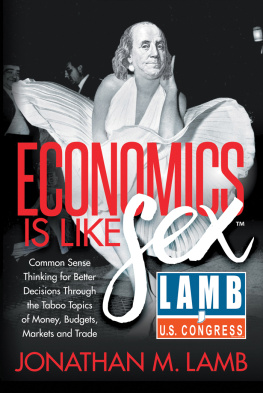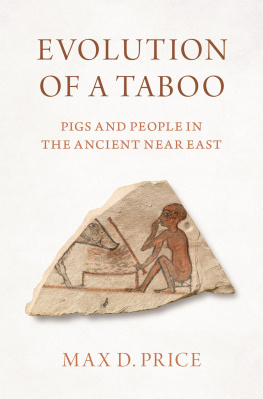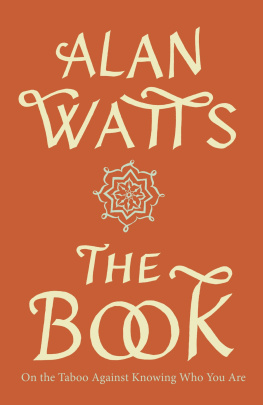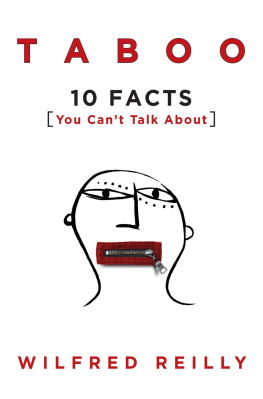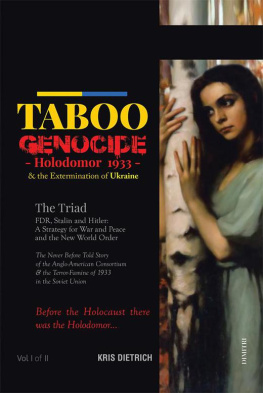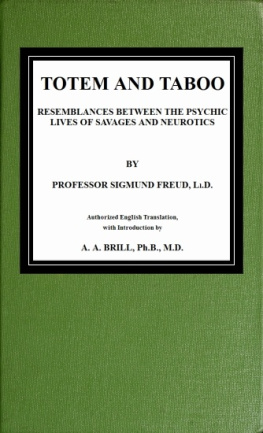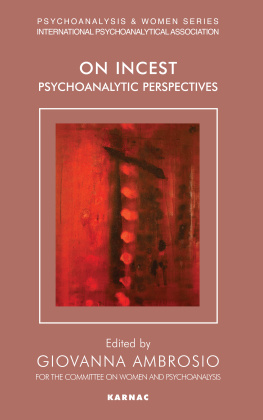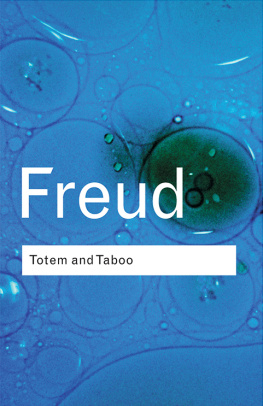First published 2005 by Paradigm Publishers
Published 2016 by Routledge
2 Park Square, Milton Park, Abingdon, Oxon OX14 4RN
711 Third Avenue, New York, NY 10017, USA
Routledge is an imprint of the Taylor & Francis Group, an informa business
Copyright 2005, Taylor & Francis.
All rights reserved. No part of this book may be reprinted or reproduced or utilised in any form or by any electronic, mechanical, or other means, now known or hereafter invented, including photocopying and recording, or in any information storage or retrieval system, without permission in writing from the publishers.
Notice: Product or corporate names may be trademarks or registered trademarks, and are used only for identification and explanation without intent to infringe.
Library of Congress Cataloging-in-Publication Data
Turner, Jonathan H. Incest : origins of the taboo / Jonathan H. Turner and Alexandra Maryanski. p. cm.
Includes bibliographical references and index. ISBN 1-59451-116-0 (cloth : alk. paper) 1. Incest. I. Maryanski, Alexandra. II. Title. HV6570.6.T87 2005 306.877dc22
2005004914
ISBN 13 : 978-1-59451-116-5 (hbk)
ISBN 13 : 978-1-59451-117-2 (pbk)
Designed and Typeset by Straight Creek Bookmakers.
FOREWORD
Robin Fox
Two casual remarks set me off on the search for the meaning of the incest taboo. When I was an undergraduate (in sociology) at the London School of Economics (LSE) in the early 1950s, we had a weekly class on social anthropology. One week the subject was the incest taboo. I was trotting out all the standard sociological explanations for exogamy and the expansion of social ties and so on when Maurice Freedman, the great expert on Chinese kinship and later professor of anthropology at Oxford, obviously bored with this recitation, interrupted me. Why cant we have a sexual free-for-all in the family and then marry out of it? I was startled out of my sociological rut and launched on a lifelong intellectual adventure.
The second significant encounter was at Harvard (the old Social Relations Department) in the late 1950s. John Whiting, the genial pioneer of culture and personality studies, observed to me that opposite-sex children who played rough-and-tumble games a lot often seemed to get very sexually excited and then dissolve in tears and anger, presumably out of frustration. It immediately hit me that this might be the foundation for Edward Westermarcks contention that siblings easily developed a natural aversion to sex with each other at the onset of puberty.
A few years later (1962) I worked this idea up into an article called Sibling Incest for the British Journal of Sociology. The article was much admired and its conclusions generally dismissed. The prevailing wisdom, backed by Freud, Frazer, Malinowski, and Lvi-Straussand most everyone elsewas that it was self-evident that we all want to commit incest, otherwise why are there all these fierce sanctions against it? I invoked Westermarcks response: that it could be that we were so against incest precisely because we didnt want to do it and so were horrified by those who did. No cigar. I think the only reason my article was published is that Westermarck is one of the revered founders of sociology at the LSE; he deserved a hearing, at least.
In contrasting the two views of sibling incest I coined the terms Freud effect and Westermarck effect. The former got nowhere, but the latter, as this excellent book demonstrates, has passed into the language like inferiority complex and male bonding. It is hard to convey how improbable this seemed in the early 1960s. Freud dominated; you had to come to terms with him. I suppose I figured that if I couldnt lick him, I could at least hijack his theory for my own purposes. Much of what followed is spelled out in detail in this book.
In contrasting the two views of sibling incest I coined the terms Freud effect and Westermarck effect. The former got nowhere, but the latter, as this excellent book demonstrates, has passed into the language like inferiority complex and male bonding. It is hard to convey how improbable this seemed in the early 1960s. Freud dominated; you had to come to terms with him. I suppose I figured that if I couldnt lick him, I could at least hijack his theory for my own purposes. Much of what followed is spelled out in detail in this book.
Jonathan Turner and Alexandra Maryanski do a wonderful job of first summarizing the classical and modern debates on the incest taboo and then giving the debate a mighty push forward. Their command of the material across a range of social and natural sciences is almost alarmingly thorough, as is their confident weaving together of all the complicated strands. When I started the Westermack debate it was impossible to get sociologists to take evolution seriously or evolutionists to have any patience with sociological concerns. No one wanted to learn new disciplines. The authors here show how far we have come. I fumbled about, for example, with what little was known of ape and monkey society. Even in 1980, the year of The Red Lamp of Incest, it was still rudimentary. But the questions were posed, and our authors are able, with greatest sophistication, to advance the debate on the primate baseline and show how cladistic analysis forces us to conclude that a loose, individualistic, and low-dominance organization characterized the common ancestor of modern chimps and humans. In following the logic of the move to the savanna, I had obviously overestimated the degree to which early hominid society would have become baboon-like in its structure. I had therefore put too much kinship into the original mixand too much dominance. The picture has to be adjusted. This is one example, but it shows how true science advances. My other great teacher was Karl Popper. He taught us all that our hypotheses should be vulnerable, and that we should welcome disconfirmation: it means we are indeed doing science!
There are many examples here of such welcome improvements. But I am heartened to see that the broad outlines remain intact. Turner and Maryanski demonstrate that the nuclear family was indeed a late development from the baseline and brought with it the problems that the taboo sought to answer. In one of the most significant additions to the debate, they show that as the family in industrial society becomes more isolated from the community the mechanisms of avoidance become less dependable. Mothers and sons seem to be inoculated by a bio-program. I would follow Earl Count in seeing this as a reverberation of the breast suckling experience throughout life. Traditionally sons were suckled for up to three years, with, as we know, profound hormonal consequences for both partners. Since the invention of feeding bottles, in industrial societies most sons are not breast-fed at all. The bioprograms are not automatic: all need the appropriate input to be activated. Jocasta never suckled Oedipus.
The Westermarck effect is very variable, and the authors are right to stress this variability. It was there in the original hypothesis, but many since have ignored it. This is not a mechanical effect. As the age of puberty descends to the preteen levels and the years of familial dependency, with greater privacy for individual children, increase, so the possibility of sibling incest rises and seems to be rising. Fathers and daughters have very little natural immunity. Without community monitoring they must fall back on those evolved systems (bio-programs) of inhibition and control of emotions so ably described here. In fact most fathers enjoy positive, loving relationships with their daughters (something many feminists seem strangely reluctant to admit), and control is not an issue unless things go wrong, as they do all too often.


